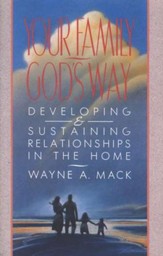Quotes about Communication
A suicide’s body was found floating in a river and a note was written on her person. The note had only two words written on it: “They said.” Do we realize what a word from our tongues can do? It can wreck a local church, mar a child for life, disrupt the harmony of a business office and destroy a marriage.
Encouragement – Oxygen for the Soul, Christian Focus, 1997, p. 89. Used by Permission.
Your words and the manner in which you speak are critical to harmonious relationships. As you learn to speak the truth in love, you must also determine when to speak, how to speak in an edifying manner, and to whom you should speak. The power of your words is enormous, and they also show the condition of your heart. Even your idle words will be accounted for in the Day of Judgment.
Self-Confrontation Manual, Lesson 13, Page 12, Used by Permission of the Biblical Counseling Foundation.
The man who lives right, and is right, has more power in his silence than another has by his words.
We know metals by their tinkling, and men by their talking.
A Puritan Golden Treasury, compiled by I.D.E. Thomas, by permission of Banner of Truth, Carlisle, PA. 2000, p. 296.
All of us would be wiser if we would resolve never to put people down, except on our prayer lists.
A Call to Spiritual Reformation, Baker, 1992, p. 29. Get this book!
A leader should be able to communicate in a nonargumentative, nondefensive and nonthreatening way – demonstrating gentleness, patience and teachability without compromising the message of the Word of God.
Leaders on Leadership, 1997, p. 92, Gospel Light/Regal Books, Ventura, CA 93003, Used by Permission.
The true test of a man’s spirituality is not his ability to speak, as we are apt to think, but rather his ability to bridle his tongue.
Disciplines of a Godly Man, Crossway Books, 1991, p. 142. Get this book!
Listen well, and you will be pronounced a “brilliant” conversationalist!
Disciplines of a Godly Man, Crossway Books, 1991, p. 65-66. Get this book!
There is no one gift which offers so strong a temptation both to vanity and to pride – as that of public speaking. If the orator really excels, and is successful, he is the immediate spectator of his success, and has not even to wait until he has finished his discourse; for although the decorum of public worship will not allow of audible tokens of applause, it does of visible ones – the look of interest, the tear of penitence or of sympathy, the smile of joy, the deep impression on the mind, the death-like stillness, cannot be concealed – all seem like a tribute of admiration to the presiding spirit of the scene; and then the compliments which are conveyed to his ear, after all the silent plaudits which have reached his eye – are equally calculated to puff him up with pride. No men are more in danger of this sin than the ministers of the Gospel; none should watch more sleeplessly against it.
Any fool can write learned language. The vernacular is the real test. If you can’t turn your faith into it, then you either don’t understand it or you don’t believe it.
Preaching usually represents one-way communication. When pastors are taught how to preach but do not learn other forms of communication, they are severely handicapped. When they express stress and tension in the congregation, they revert to the form of communication they know best, and that is preaching. Not listening, mind you, but preaching. We [as pastors] have learned well how to speak our opinions, but we have not learned how to hear or respond equally well to the opinions and positions of others. Often, once we stake out a position within a conflict scenario, we are immovable.
Leaders on Leadership, 1997, p. 113, Gospel Light/Regal Books, Ventura, CA 93003, Used by Permission.
It has been estimated that from the first “good morning” to the last “good night,” the average person engages in 30 conversations a day; some of you average more than that, some of you, less. Statisticians have estimated that each of us will spend 13 years of our life talking, and every day, our words could write a book of 50-60 pages. In a year, if we are just average, we could author 264 books of over 200 pages, just with our words. You can do more than that if you can speak in excess of 300 words per minute, as some of us are able to do, or if you talk incessantly at any speed.
Exposing the Truth About Men’s Hearts. The article originally appeared (http://www.gty.org/Resources/Sermons/2294) at www.gty.org. © 1969-2008. Grace to You. All rights reserved. Used by permission.
A corrupt and unholy heart eventually will be exposed by corrupt and unholy speech… If the tongue is not controlled by God, it is a sure indicator that the heart is not, either.
The tongue is you in a unique way. It is the tattletale on the heart and discloses the real person. Not only that, but misuse of the tongue is perhaps the easiest way to sin. There are some sins that an individual may not be able to commit simply because he does not have the opportunity. But there are no limits to what one can say, no built-in restraints or boundaries. In Scripture, the tongue is variously described as wicked, blasphemous, foolish, boasting, complaining, cursing, contentious, sensual and vile. And that list is not exhaustive. No wonder God put the tongue in a cage behind the teeth, walled in by the mouth!
Good listening involves:
1. Letting the other person speak without interruption.
2. Giving the other person your undivided attention.
3. Making sure you really understand what the other person is saying or thinking.
[Guard] against the temptation to tune the other person out… Perhaps you try to give the impression you are interested in what the other person is saying. In reality you are not. What you are really interested in is how you are going to defend yourself, display your wisdom, crack a good joke or straighten the other person out.
Wherever you find marital failure, you will find a breakdown in real communication. Wherever you find marital success, you will find a good communication system.
Attentive listening entails an eagerness to hear everything with regard to (another’s) thoughts, feelings, and experiences. It’s more than just keeping our mouths shut. Listening means making full eye contact, not looking around with a blank stare. We don’t interrupt, yawn, or prematurely formulate an answer. Careful listening will encourage (others) to bare their souls to us and share their innermost thoughts.
Communication requires courage for the very simple reason that, if your convictions mean anything at all, someone will oppose you. If opposition to your ideas and beliefs offends you, do not attempt to lead. Every leader knows the experience of rejection and opposition. You must prepare for it, expect it, and deal with it when it happens.
Speaking is an art and a craft, not a science. The most effective speaker’s love language and enjoy telling a tale. They experiment with different ways of using words and sentences, different strategies for constructing messages and talks. Leaders who are good speakers learn to use their voice as an instrument rather than a piece of equipment. They learn how to use humor without becoming comedians; to arouse emotion without selling out to emotionalism; and to make an audience want more, not less, from the speaker.
The Conviction to Lead, Bethany House Publishers, 2012, p. 126-127 , Used by Permission.
Get this book!
Average leaders are satisfied to use average words in an average way. Effective leaders, those who aspire to lasting and extended influence, will learn to use words as arrows fired from a bow, carefully chosen and aimed in order to accomplish a purpose.
The Conviction to Lead, Bethany House Publishers, 2012, Used by Permission.
Get this book!
Horizontally, death and life are in the power of the tongue (Proverbs 18:21). The temptation is to think, “But I’m not doing anything. It’s only words.” But words alone can bring a government down or establish peace, destroy a marriage or renew hope, crush a child’s sense of worth or lift him to confidence and joy, unify a church or splinter it into angry factions, send a soul to hell or to heaven. When we observe carefully the impact of our words, we see why God cares so intensely about them.
An unbridled tongue is the chariot of the devil, wherein he rides in triumph… The course of an unruly tongue is to proceed from evil to worse, to begin with foolishness, and go on with bitterness, and to end in mischief and madness (Ecclesiastes 10:13) (Edward Reyner).
A Puritan Golden Treasury, compiled by I.D.E. Thomas, by permission of Banner of Truth, Carlisle, PA. 2000, p. 296.
Tenderness will win hearts so hardened that nothing else can move them. Truth spoken in love goes directly to the heart of the hearer and calls forth a kind response… It overcomes prejudice and hardness… It melts and wins where the most logical argument, the most terrible warning, and the severest threatening would produce no more impression than the falling of dew upon a block of granite (Wilson Hogg).
A Hand-Book of Homiletics and Pastoral Theology, Free Methodist Publishing House, 1919, p. 342-343.
Email is an isolated activity. You don’t need anyone around to read or respond to an email. This makes it convenient. But it also means you miss all the nonverbal cues: vocal inflections, facial expressions, gestures. So it’s easy to overlook the actual person we’re emailing, which means that misunderstandings are more likely to arise (Marshall Shelly).
Ministering to Problem People in Your Church, Bethany House Publishers, 2013, p. 85. Used by Permission.
Whenever there is conflict, you should use email: 1. If there needs to be a record of the interaction. 2 If you are dealing with a conflict where the emotional level is fairly low. 3. If you can be gracious and not upset as you’re drafting your reply. 4. If you’re having an initial conversation to set up a phone call or face to face meeting to address things in more detail. Do not use email: 1. If you’re in conflict with someone you’ve never met face-to-face. 2. Your emotions are running high. 3 If the email exchange has gone back and forth more than three times. This could mean that the issue is too complex to deal with using only email. Ask to speak by phone or face-to-face (Marshall Shelly).
Ministering to Problem People in Your Church, Bethany House Publishers, 2013, p. 86. Used by Permission.
Kind words produce their own image in men’s souls; and a beautiful image it is. They soothe and quiet and comfort the hearer. They shame him out of his sour, morose, unkind feelings. We have not yet begun to use kind words in such abundance as they ought to be used.
Cold words freeze people, and hot words scorch them, and bitter words make them bitter, and wrathful words make them wrathful. Kind words also produce their image on men’s souls; and a beautiful image it is. They smooth, and quiet, and comfort the hearer.
Authentic communication is much more than just talking. It is understanding and being understood; identifying a tone of voice; detecting nonverbal cues; responding appropriately to offense; resolving conflicts; knowing what to say, when to say it and how to say it; experiencing the risks and rewards of knowing and being known; and much more.
Preparing for Marriage, 1997, p. 140, Gospel Light/Regal Books, Ventura, CA 93003, Used by Permission. Get this book!
Good listening…improves your ability to understand others, it shows that you realize you do not have all the answers, and it tells the other person that you value his or her thoughts and opinions. Even if you cannot agree with everything others say or do, your willingness to listen demonstrates respect and shows that you are trying to understand their perspective.
Reprinted from The Peacemaker: A Biblical Guide to Resolving Personal Conflict, Ken Sande, Baker Books, 3d ed., 2004, p. 165. Peacemaker® Ministries. www.Peacemaker.net. Used by Permission. Get this book!
Concerning relationships, tact is the ability to deal with people sensitively, to avoid giving offense, to have a feel for the proper words or responses to a delicate situation.
Your communication will reveal the kind of [person] you really are, because what comes out of your mouth is usually what’s in your heart. If you truly desire to exemplify Christ you will seek to become a good communicator. Everything that Jesus Christ communicated was holy, clear, purposeful and timely.
The Exemplary Husband, Focus Publishing, 2000, p. 229. Get this book!
We often think wisdom is demonstrated by speaking many words; however according to the Bible wisdom is often shown by our silence.
Although the tongue is capable of great destruction, the tongue in and of itself is not the ultimate culprit. The ultimate culprit is the heart! The tongue is simply a conduit, or pipeline from the heart. Therefore proper speech reveals a good heart while improper speech reveals a bad heart. Our words reveal our heart and our heart reveals our true master, our true allegiance and our true citizenship. It’s that simple!
Our mouths are not factories trying to manufacture proper speech, but rather fountains in which proper speech overflows from hearts that are being transformed by the Spirit. As Jesus said, “For the mouth speaks out of that which fills the heart” (Mt. 12:34).
What are the changes from “bad tree” to “good tree,” “put off” to “put on” regarding our speech? Foul language to wholesome speech. Complaining to trusting the Lord. Criticism to edifying remarks. Gossip to prayer. Deception to speaking truth. Angry words to kind words. Trivial blabbering to meaningful speech. Worldly philosophy to biblical truth. Praising self to praising God. It is words that resemble the heart changed by the Holy Spirit. Words that are thus loving, joyful, peaceful, patient, kind, good, faithful, gentle and self-controlled.
Nothing seals the lips and ties the tongue like the poverty of our own spiritual experience. We say nothing because we have nothing to say.
Romans – God’s Good News for the World, 1994, InterVarsity Christian Fellowship/USA. Used with permission of InterVarsity Press, P.O. Box 1400, Downers Grove, IL 60515. www.ivpress.com.
A good listener:
1. Blocks out possible distractions and is not easily distracted.
2. Concentrates (listening is work) and avoids mind drift.
3. Anticipates but does not assume (does not jump to conclusions).
4. Does not judge until comprehension is complete.
5. Recognizes his own predispositions, prejudices or biases toward the subject or speaker and attempts to re-evaluate his position (he listens objectively).
6. Does not dwell on unfamiliar vocabulary, but rather continues to work at listening and attempts to comprehend the main intent of the message.
Life in the Body of Christ, Founders Press, 2006, p. 142, www.founders.org. Used by Permission.
That non-bony, flappable instrument between our bicuspids can be an instrument of tremendous good or cataclysmic destruction. It can be used to build people up in the faith or to destroy their hard-earned reputations. It can help bring about peace among nations or can start a war. And it can be an instrument for good in a local church, or can destroy a work of God.
Life in the Body of Christ, Founders Press, 2006, p. 220, www.founderspress.org. Used by Permission. Get this book!
Some of the most common misuses of our tongues are:
1. Gossiping about fellow members.
2. Criticizing a sermon.
3. Running the pastor down.
4. Passing along matters which should be kept confidential.
5. Constantly questioning the leadership’s methods and motives.
6. Setting two members against each other.
7. Talking about dirty and immoral issues.
8. Making subtle, negative references about others.
9. Talking of matters about which we are uninformed.
10. Making disparaging remarks to others.
11. Bragging about our accomplishments and acts of service.
12. Encouraging church disharmony.
Life in the Body of Christ, Founders Press, 2006, p. 220-221, www.founderspress.org. Used by Permission.
Listening takes sacrifice, it takes humility and it takes the rescue of your heart from yourself.
The book of Proverbs is, in ways, a treatise on talk. I would summarize it this way: words give life; words bring death – you choose. What does this mean? It means you have never spoken a neutral word in your life. Your words have direction to them. If your words are moving in the life direction, they will be words of encouragement, hope, love, peace, unity, instruction, wisdom, and correction. But if your words are moving in a death direction, they will be words of anger, malice, slander, jealousy, gossip, division, contempt, racism, violence, judgment, and condemnation. Your words have direction to them. When you hear the word talk you ought to hear something that is high and holy and significant and important. May God help us never to look at talk as something that doesn’t matter.
The Power of Words and the Wonder of God, edited by John Piper and Justin Taylor, Crossway, 2009, p. 24.
The finest art of communication is not learning how to express your thoughts. It is learning how to draw out the thoughts of another.
Shepherding a Child’s Heart, Shepherd Press, 1995, p. 96. Used by Permission. Get this book!
Communication is the art of expressing in godly ways what is in my heart and of hearing completely and understanding what another thinks and feels.
Shepherding a Child’s Heart, Shepherd Press, 1995, p. 119. Used by Permission. Get this book!
Communication must be multi-faceted and richly textured. It must include encouragement, correction, rebuke, entreaty, instruction, warning, understanding, teaching and prayer. All these must be part of your interaction with your children.
Shepherding a Child’s Heart, Shepherd Press, 1995, p. 104. Used by Permission. Get this book!
“If one gives an answer before he hears, it is his folly and shame” (Pr. 18:13). The fool responds without really hearing, with no careful thought or consideration. Speaking in haste is shameful. When we don’t listen, we disclose a low regard for the other’s words and a high regard for our own.
“A fool takes no pleasure in understanding, but only in expressing his opinion” (Pr. 18:2). The agenda of a fool in conversation is getting things off his chest. Even when he is not speaking, he is not truly listening. He is simply shaping what he will say next. His next volley in the conversation is not returning the ball you served, but serving a new ball.
“The purpose in a man’s heart is like deep water, but a man of understanding will draw it out” (Pr. 20:5). The goals and motivations of the human heart are not easily discovered. The patience, skill, and ability of an understanding person are required to draw out those deep waters.
We show respect for others when we listen. Listening says: “I value you and what you are saying; I value it so highly that I will do whatever I can to facilitate your communication. I believe that the time taken to listen is a good investment. I will listen and find joy in understanding the meaning and intent of your words.”
What keeps us from being thoughtful listeners?… The simple answer is that listening is expensive. It requires changing the pace at which we live our lives. It takes time… The more profound answer to the question has to do with our humanity. We are members of a fallen race. We are proud, and proud people don’t listen well. We are fearful people, and fear keeps us from entrusting ourselves to others. We think more highly of ourselves than we ought. We are frequently hardened by the deceitfulness of sin. We are compulsively self-serving and often too full of ourselves to humbly listen to others.
What’s in the well of the heart comes up in the bucket of the mouth (Luke 6:45).
Someone once said, “Gossip is like soap – mostly lye! A gossip is just a fool with a keen sense of rumor. Profanity is a public announcement of stupidity. Swearing is a lax man’s way of trying to be emphatic. A lie is a coward’s way of getting out of trouble. Truth is as clear as a bell, but it isn’t always tolled. When you sing your own praise, you always get the tune too high. Don’t brag; it isn’t the whistle that pulls the train.”
Isn’t it better to leave people wondering why you didn’t talk then why you did?
A wise old owl lived in an oak. The more he heard, the less he spoke. The less he spoke, the more he heard. Why can’t we all be like the wise old bird?
Better to remain silent and be thought a fool than to open your mouth and remove all doubt.
Mind what you say or you might say whatever comes to mind.
When love is felt, the message is heard.
Quoted by Curtis C. Thomas, Practical Wisdom for Pastors, Crossway Books, 2001, p. 65.
God has given us two ears, but one tongue, to show that we should be swift to hear, but slow to speak. God has set a double fence before the tongue, the teeth and the lips, to teach us to be wary that we offend not with our tongue.
A holy man used to say when he returned home from a night of table-talk that he would never accept such an invitation again, so remorseful did such nights always leave him; so impossible did he find it for him to hold his peace, and to speak only at the right moment, and only in the right way. And, without his holiness, I have often had his remorse, and so, I am quite sure, have many of you. There is no table we sit at very long that we do not more or less ruin either to ourselves or to someone else. We either talk too much, and thus weary and disgust people; or they weary and disgust us. We start ill-considered, unwise, untimeous topics. We blurt out our rude minds in rude words. We push aside our neighbour’s opinion, as if both he and his opinion were worthless, and we thrust forward our own as if wisdom would die with us. We do not put ourselves into our neighbour’s place. We have no imagination in conversation, and no humility, and no love. We lay down the law, and we instruct people who could buy us in one end of the market and sell us in the other if they thought us worth the trouble. It is easy to say grace; it is easy to eat and drink in moderation and with decorum and refinement; but it is our tongue that so ensnares us. For some men to command their tongue; to bridle, and guide, and moderate, and make just the right use of their tongue, is a conquest in religion, and in morals, and in good manners, that not one in a thousand of us has yet made over ourselves. [But Christ was such a one.] And much as I would have liked to see how He acted in everything, especially would I have watched Him how he guided, and steered, and changed, and moderated, and sweetened the talk of the table.
When Christians meet together, do they not talk too much about religion, preachers, and sermons? I cannot but think, that if they communed less about religion, and more of Jesus, it would give a higher tone of spirituality to their conversation, and prove more refreshing to the soul. He would then oftener draw near, and make Himself one in their midst, and talk with them by the way.
It is much easier to speak first, thinking you will listen later. But often, speaking first means losing the opportunity to listen at all.
Everyday Talk, Talking Freely and Naturally about God with Your Children, Shepherd Press, 2004, p. 32, Used by Permission. Get this book!
Swearing is how the world today gives expression and forcefulness to its conversation.
Everyday Talk, Talking Freely and Naturally about God with Your Children, Shepherd Press, 2004, p. 138, Used by Permission. Get this book!
God has a higher standard for our speech than simply “not swearing.” What does He want from us? Is it acceptable to use slang that substitutes euphemisms for profanity?
Everyday Talk, Talking Freely and Naturally about God with Your Children, Shepherd Press, 2004, p. 141, Used by Permission. Get this book!
The “put on” response to swearing is gratitude. Notice the end of Ephesians 5:4. Paul says that gratitude should punctuate your speech, not swearing. This contrast is striking. It is not simply replacing one set of words with another set of words. God wants your grateful heart. He wants your faithful, trusting heart. He wants your submissive, humble heart. When He has these things from you, swearing will not be an issue. If your talk acknowledges that God has sovereign control over your life, and that He is working all things together for your good, you will express your gratitude, not your frustration or rebellion.
Everyday Talk, Talking Freely and Naturally about God with Your Children, Shepherd Press, 2004, p. 141-142, Used by Permission. Get this book!
































